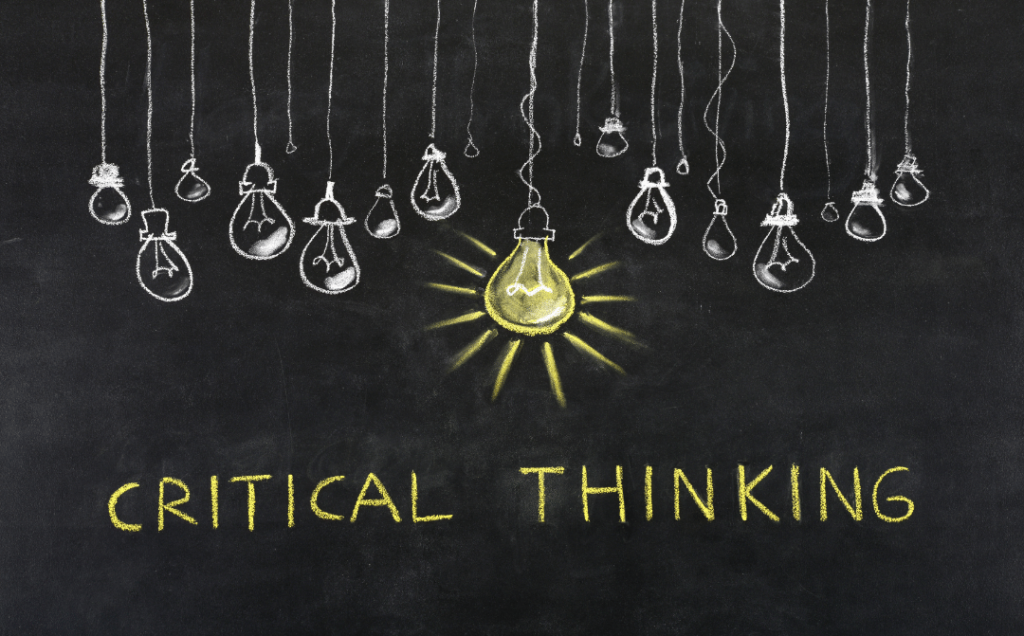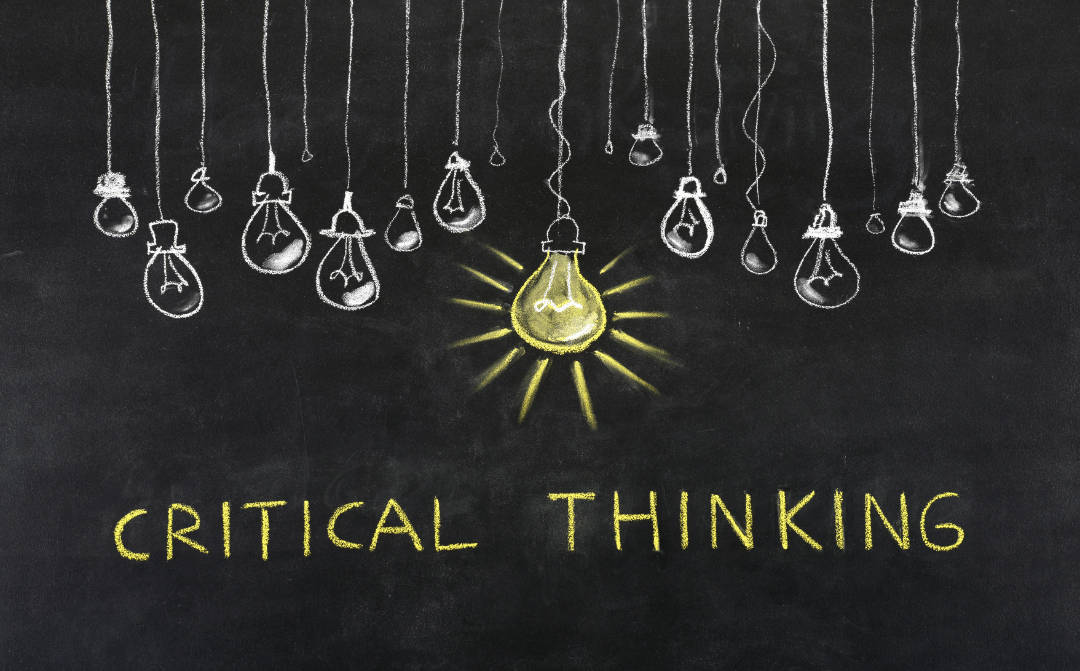Career Trends: March 27, 2023
Curated by the Knowledge Team of ICS Career GPS

- Excerpts are taken from an article published on psychologytoday.com
The ability to think critically is highly valuable and is among the most in-demand skills across almost all sectors. They are so valuable and in demand because they are considered to be in relatively short supply. That’s because critical thinking is far more challenging than it appears to be.
Critical thinkers do not leap to conclusions. Instead, they take the time to consider various possibilities and do not become too attached to one point of view. They do not latch on to one solution. They are aware that most remedies are only short-term fixes that get better with time and new information. Critical thinkers are in the habit of distinguishing between reliable and unreliable sources. They utilise logical thinking and carefully compare the merits of opposing viewpoints. At the same time, they are highly independent in their judgements and receptive to the opinions of others.
These are the three elements of critical thinking to master.
1. Proactive Learning
Here’s why you should care about proactive learning: Of course, the more you learn, the more you will know. But there is more to it than that: All the leading research shows that the very act of learning also strengthens your mind. If you are not actively learning, your mind is weakening—just like any muscle. No matter how smart you are, if you are not actively learning, you steadily lose those smarts over time.
Exercising your mental muscles regularly is the key to building them, just like physical muscles. This involves acquiring knowledge, practising technique, and considering multiple competing perspectives:
- Stored knowledge is the result of studying good information.
- Stored skills are the result of practicing good technique.
- Stored wisdom is the result of contemplating multiple competing good perspectives.
“Good technique,” in the case of non-physical skills, means keeping an open mind. That means suspending judgment, questioning assumptions, and continually seeking the best new information, technique, and perspective.
2. Problem-Solving
In today’s information-loaded environment, so many answers to so many questions are available at the tip of your fingers. Many people today are simply not in the habit of truly thinking on their feet. Without a lot of experience puzzling through problems, it should be no surprise that many people are often puzzled when encountering unanticipated problems.
Here’s the thing: Usually, you don’t need to make important decisions based on your current judgment. You are much better off if you can rely on the accumulated experience of the organisation in which you are working.
Ready-made solutions are just best practices captured, turned into standard operating procedures, and deployed throughout the organisation to employees for use as job aids. The most common is a simple checklist:
- If A happens, do B
- If C happens, do D
- If E happens, do F
What kind of job aids do you have at your disposal to deal with recurring problems? If you already have such job aids at your disposal, how can you better use them as learning tools?
And here’s the good news: By mastering these best practices, you will get better not only at solving the specific problems anticipated but also much better at solving unanticipated problems. By implementing specific step-by-step solutions to recurring problems, you will learn a lot about good problem-solving.
3. Decision-Making
Decision Making differs from having sheer mental power, mental ability, or natural intelligence. There isn’t a requirement for memorisation or collected knowledge in this situation. More than just tool and technique, it has competence involved.
Making wise decisions involves foreseeing potential outcomes, being able to connect cause and effect, and visualising the effects of choosing one course of action and set of circumstances over another. Ironically, the only way to build this “move ahead” ability to foresee the future is via learning from the past.
However, making wise decisions cannot only be learned via experience. Paying close attention and actively extracting lessons from one’s experiences is crucial to learning from experience. You may start planning ahead with understanding if you can start to recognise patterns in causes and their consequences. That’s ultimately the secret to making wiser decisions.
…
Have you checked out yesterday’s blog yet?
Common Data Science Myths You Should Unlearn
(Disclaimer: The opinions expressed in the article mentioned above are those of the author(s). They do not purport to reflect the opinions or views of ICS Career GPS or its staff.)
Like this post? For more such helpful articles, click on the button below and subscribe FREE to our blog.





One Reply to “3 Elements Of Critical Thinking”